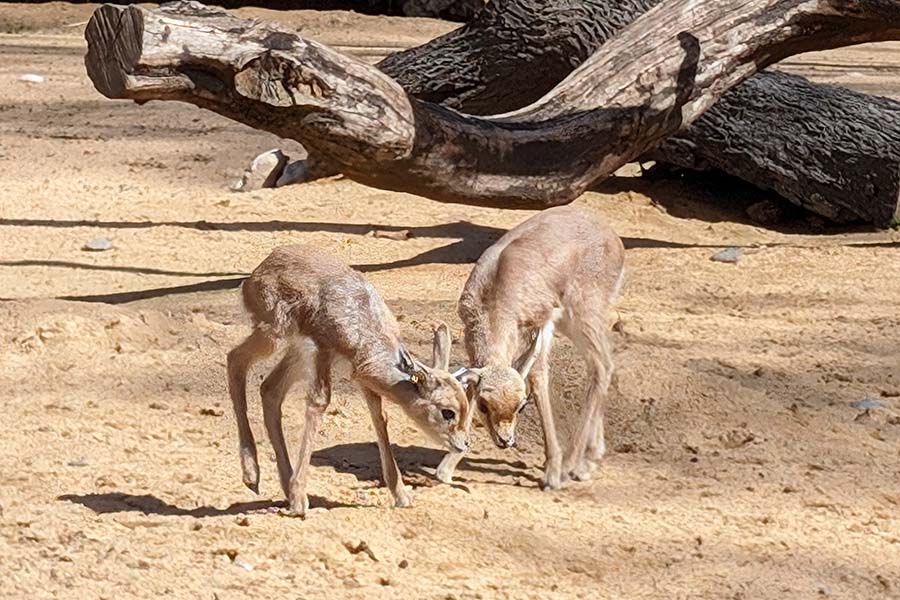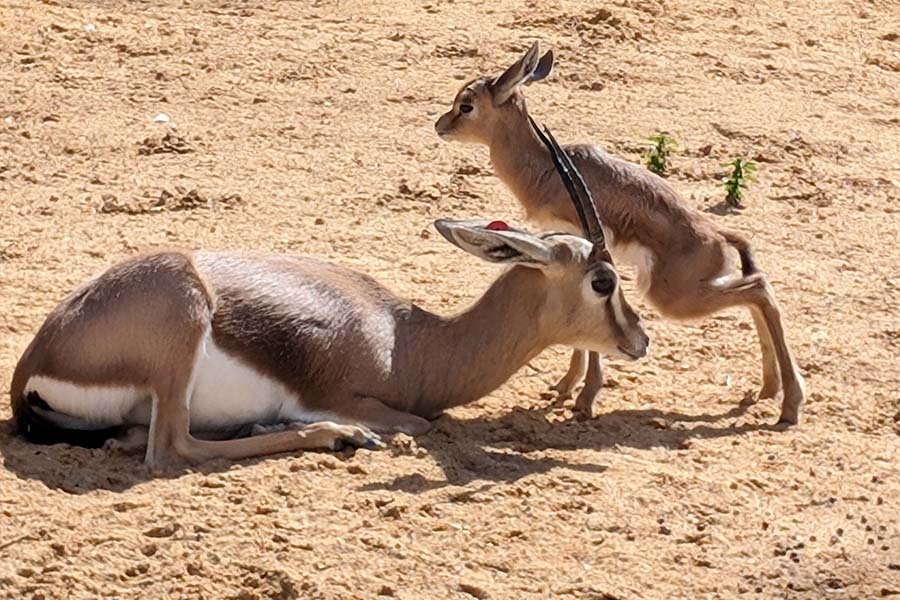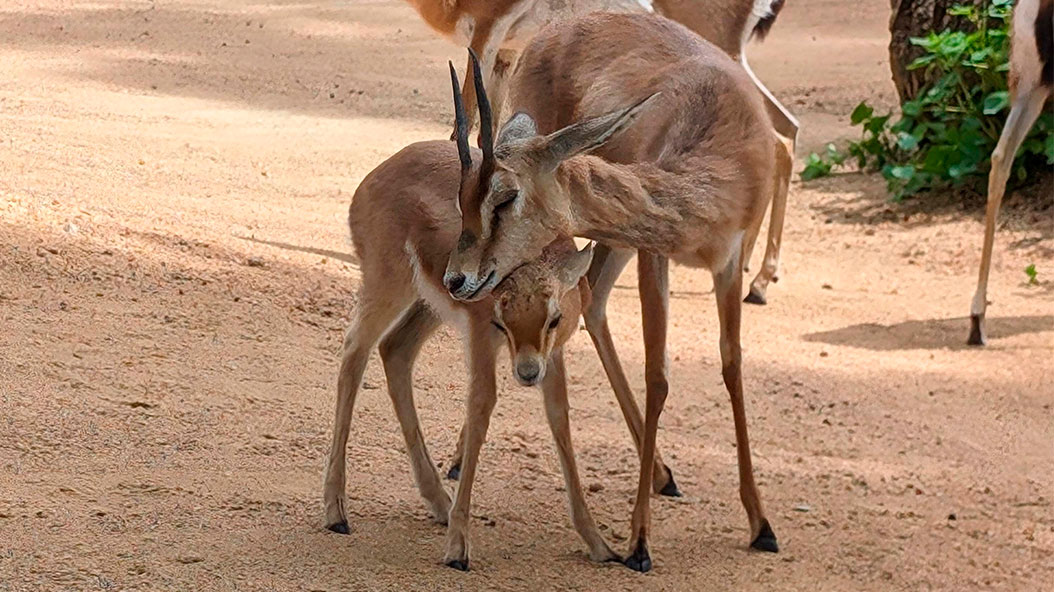Since the start of the year, a further four dorcas gazelles (Gazella dorcas) have been born at the Zoo de Barcelona. Three males and one female, all healthy and now living with the rest of the group.
The dorcas gazelle, native to the Western Sahara, was on the verge of extinction due to excessive hunting in the places it inhabits. Now, thanks to ongoing conservation programmes that the Zoo plays a very active role in, the species is classified as vulnerable, according to the International Union for Conservation of Nature (UICN).
In this context, the Zoo de Barcelona’s director, Sito Alarcon, emphasised that “the birth of four dorcas gazelles is a great achievement for the conservation programmes of this species and reflects the efforts made by the Zoo and other scientific institutions to protect and restore biodiversity in a region that is gravely threatened by human pressures and the effects of climate change”.

Zoo de Barcelona is a partner in the dorcas gazelle reintroduction programme
The dorcas gazelle has always been hunted by the nomadic populations of the Western Sahara who use its meat as food. In order to prevent its extinction and that of other Saharan species also under threat, the Saharan Fauna Rescue Park was created in Almeria in 1971.
Thanks to the work carried out by this centre, part of the National Research Council (CSIC) Arid Zones Research Station (EEZA), and the support of Barcelona and other European zoos, over the course of the past few years, it has been possible to reintroduce dorcas gazelles in certain parks and reserves in North Africa.
Between 2006 and 2009, 30 dorcas gazelles were reintroduced in the Guembeul Nature Reserve in Senegal; and since 2009, the Zoo de Barcelona Foundation has been working in partnership with the CSIS to protect the reintroduction area and to monitor the individuals released into the wild with the aim of undertaking actions that will once again enable this species to survive in its natural habitats.
The Zoo is also providing funding and veterinary and educational advice to Senegal, one of the native countries of this species which inhabits the deserts and steppes of North Africa, Arabia and the Near East.
The Zoo is also taking part in the ex situ EEP dorcas gazelle conservation programme run by the European Association of Zoos and Aquaria (EAZA).




